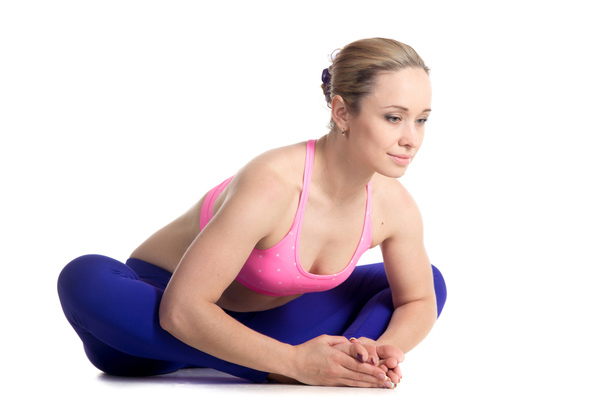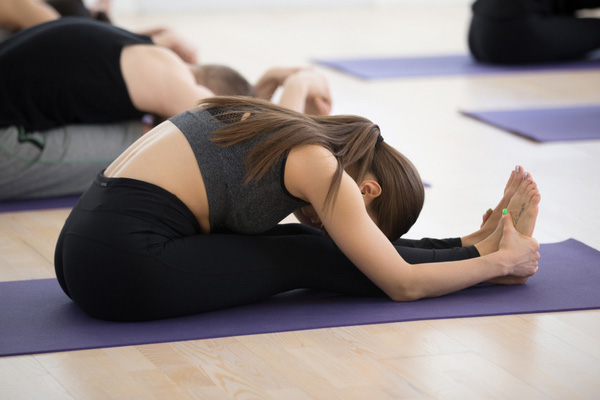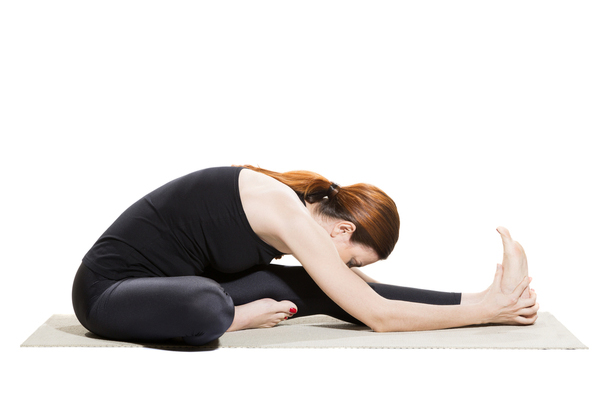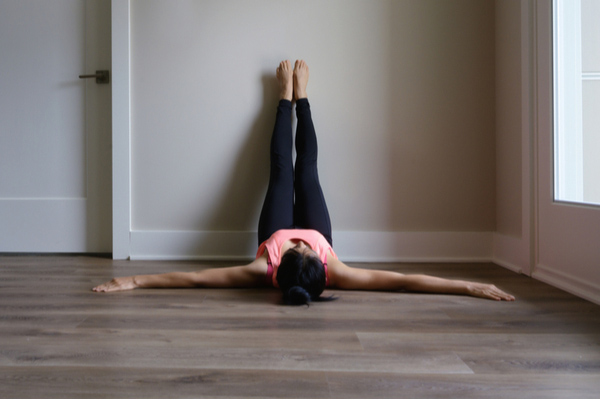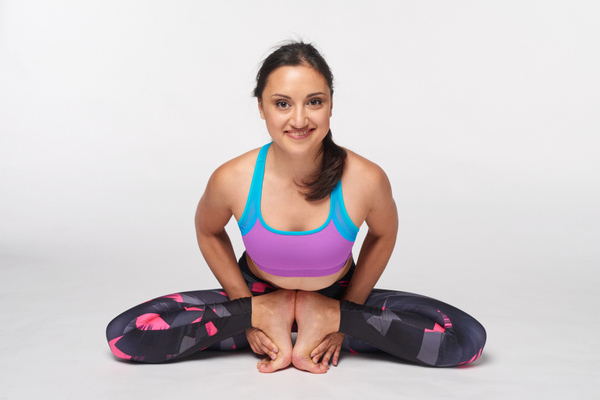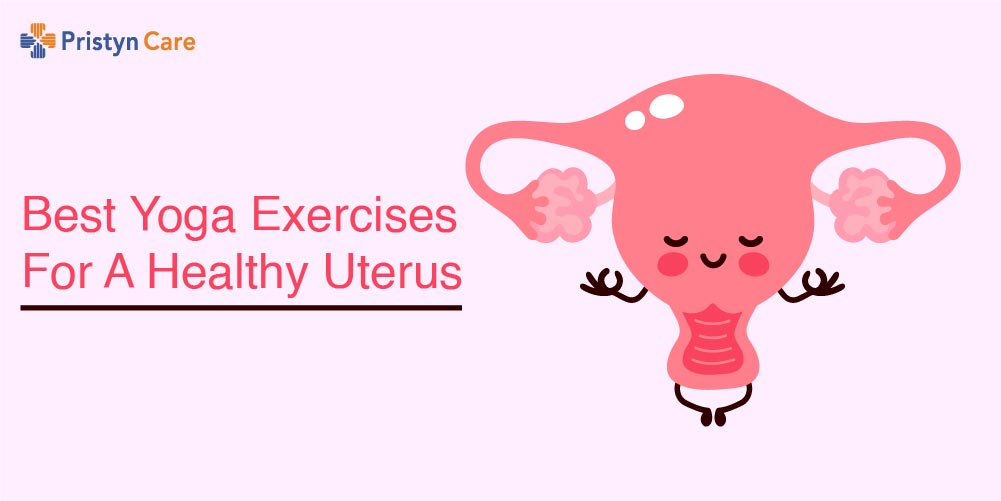
The holistic health benefits of yoga is a fact known to all of us. Practicing yoga regularly brings drastic changes in your overall health. Yoga also plays an essential role in keeping your reproductive system healthy.
Nowadays, women often complain of issues related to the uterus or reproductive system. The major reason behind this is the hectic lifestyle where we let our health take a back seat. This is where the role of yoga is crucial in improving the quality of our lifestyle.
Yoga also helps in improving conditions such as uterine fibroids, polyps, and endometriosis. It ensures proper blood circulation and strengthening of the uterus.
Hence, simple yoga exercises have the potential of bringing amazing changes in your health. So, if you are also looking for some yoga tips for a healthy uterus, then this is just the right place for you.
Table of Contents
Let’s put forth some of the most effective yoga exercises that can do wonders for your uterine health.
- Baddha Konasana (Bound Angle Pose)- This yoga asana proves to be very beneficial for the uterus. Baddha konasana effectively works on the abdominal muscles, especially the uterus, and the ovaries. This bound angle pose also boosts the blood circulation in the uterus and stretches its muscles. This asana is also well known for boosting fertility.
To perform Bound Angle Pose correctly:
Sit with your legs stretched in front of you. As you breathe out, bend your knees and keep bringing the heels to your pelvis. Rest your knees on either side and press the feet together, with soles touching each other.
Hold the toes with your hands to keep the legs in the angle pose. As you hold your feet, also bring your body forward to hold the pose for as long as you can. Begin with performing this asana for 5-10 minutes and gradually increase the time.
- Bhujangasana (Cobra Pose)- Cobra pose stretches and strengthens the muscles of the uterus. This yoga exercise boosts the circulation of oxygenated blood through the spine and the pelvis. Cobra Pose also tones the muscles of the lower body and releases the tension out of the body. Do try this yoga exercise to keep your uterus healthy and regulate your menstrual cycle. (Also Read: How Does Meditation and Home Remedies Help with Irregular Periods? )
To perform Cobra Pose correctly:
Lie down on your stomach and stretch your legs on the floor. Place your hands under the shoulder with palms facing the floor. Keep the muscles of your legs firm and start straightening the arms while lifting your upper body.
As you raise your chest, feel the pressure evenly distributed on your spine. When you completely straighten your arms, try to hold the pose for 12-15 seconds and keep the focus on your breathing. Then, gradually release the cobra pose to relax.
- Paschimottanasana (Seated forward bend)– This yoga asana is simple yet effective for reproductive health and has many other health benefits as well. Paschimottanasana stretches the uterine and ovarian muscles and gives relief from menstrual cramps. Ensure that you perform Paschimottanasana on an empty stomach.
To perform seated forward bend correctly:
Morning time is the best to perform paschimottanasana. Just sit straight with and stretch the legs in front. As you exhale deeply ring your body forward to touch your face to your thighs and stretch your arms to touch the toes.
Stretch and hold the posture only as much as you can and then gradually release it after inhaling deeply. Keep the arms stretched when you draw back the upper body. Relax the arms with a deep exhalation.
- Janu Sirsana (Head-to-knee forward bend)- This yoga pose stretches the muscles of the back and the pelvis. Head-to-knee forward bend gives significant relief from menstrual cramps and also eases out the discomfort during menopause. It is an excellent exercise to improve the problem of uterine fibroids and flushing out toxins from uterus.
To perform head-to-knee forward bend properly-
Sit on an even surface and keep your back straight. Stretch out the right leg and bring the left foot so that the sole comes in contact with the inner side of the right thigh. Also, make sure that your upper body is aligned with the stretched leg.
Place your hands nearby the hips to provide support to the body. As you inhale deeply, begin stretching your arms and the torso upwards. Once you stretch your arms completely, try to reach and hold your toes. Just hold this asana for as long as you can and gradually release it with a deep breath. Initially, janu sirsana seems difficult, therefore do not try to overstretch yourself
- Viparita Karani (Legs-up-the-wall pose)– This yoga exercise is the best for relieving the menstrual cramps in the uterus. It also soothes pain in the lower back. This simple yoga asana is a must to keep a healthy uterus.
Legs-up-the-wall is also quite simple to perform, you just need to follow proper steps to hit the right pose.
To perform Legs-up-the-wall correctly-
Sit with your spine straight and your left side towards the wall. Using a cushion to support your back is a fine option. Begin shifting your body to the left and raise your legs up the wall.
Be cautious as you rest your lower back on the cushion and use your hands to maintain the balance while you shift. Place your arms on either side with your palms facing upwards. Relax your pelvic muscles and stay in this viparita karani pose for 5-10 minutes and keep breathing deeply.
- Moola bandha asana- This yoga asana boosts the muscles of the pelvis. It also has soothing effects on the mind and calms the entire nervous system. Therefore, you should definitely try moola bandha asana for holistic health benefits.
To perform Moola bandha asana correctly-
Sit on the floor with the legs stretched in front. To get in the pose, flex your knees and draw the soles of the feet towards your body. Your legs should rest on the floor while you draw your heels closer.
Keep your hands behind the butts and lift the butts on your heels. As you lift the buttocks, ensure that your hands are firm and in touch with the perineum. While doing so, your knees should rest on the floor and your hands on the knees.
Initially, retain this posture for 2-3 minutes and gradually increase the time week by week. Gradually release the posture to the initial position of stretched legs. Just remember that you should not strain the ankles while performing moola bandha asana.
Take Away
You feel the boost in your core strength when you regularly perform these asanas. The benefits of these asanas, especially on your uterus are enough to set you in action. So, ditch the inactive lifestyle and embrace these wonderful yoga asanas for holistic health improvement.
Also Read:

